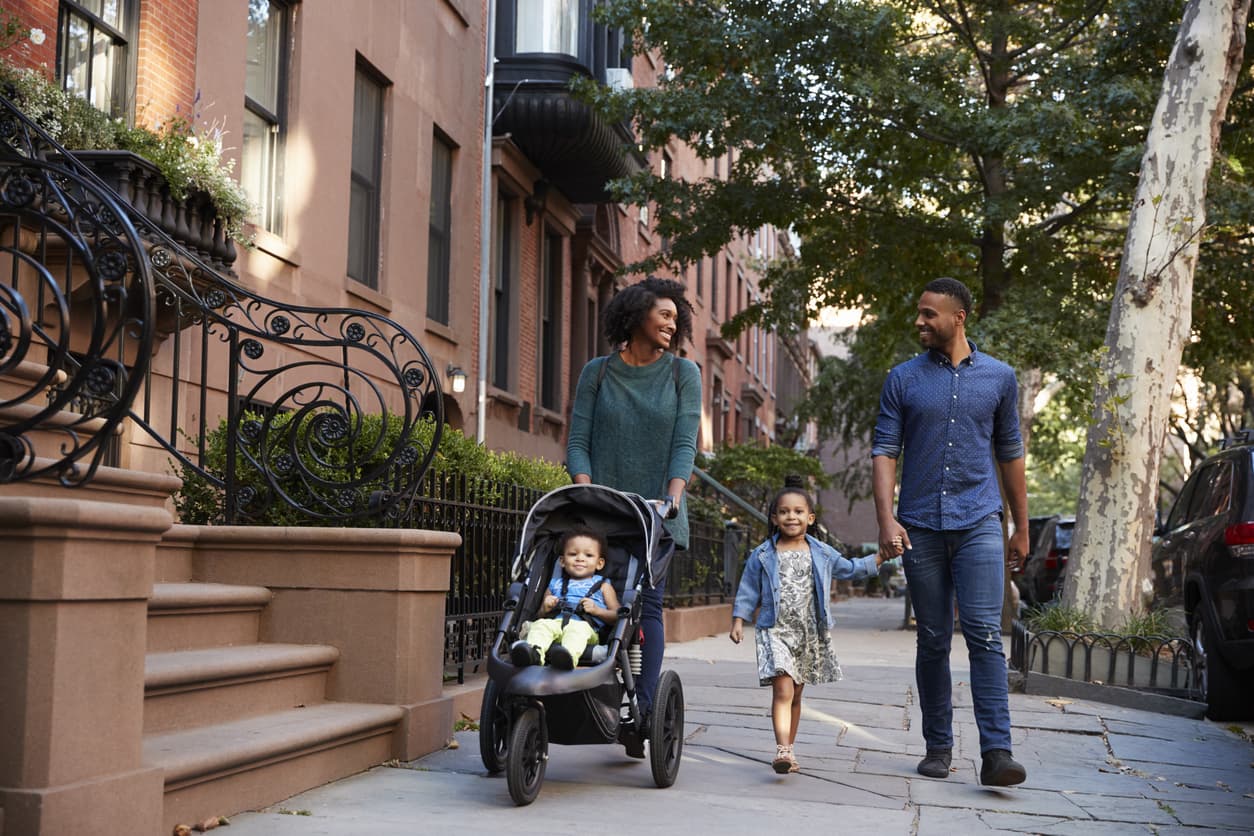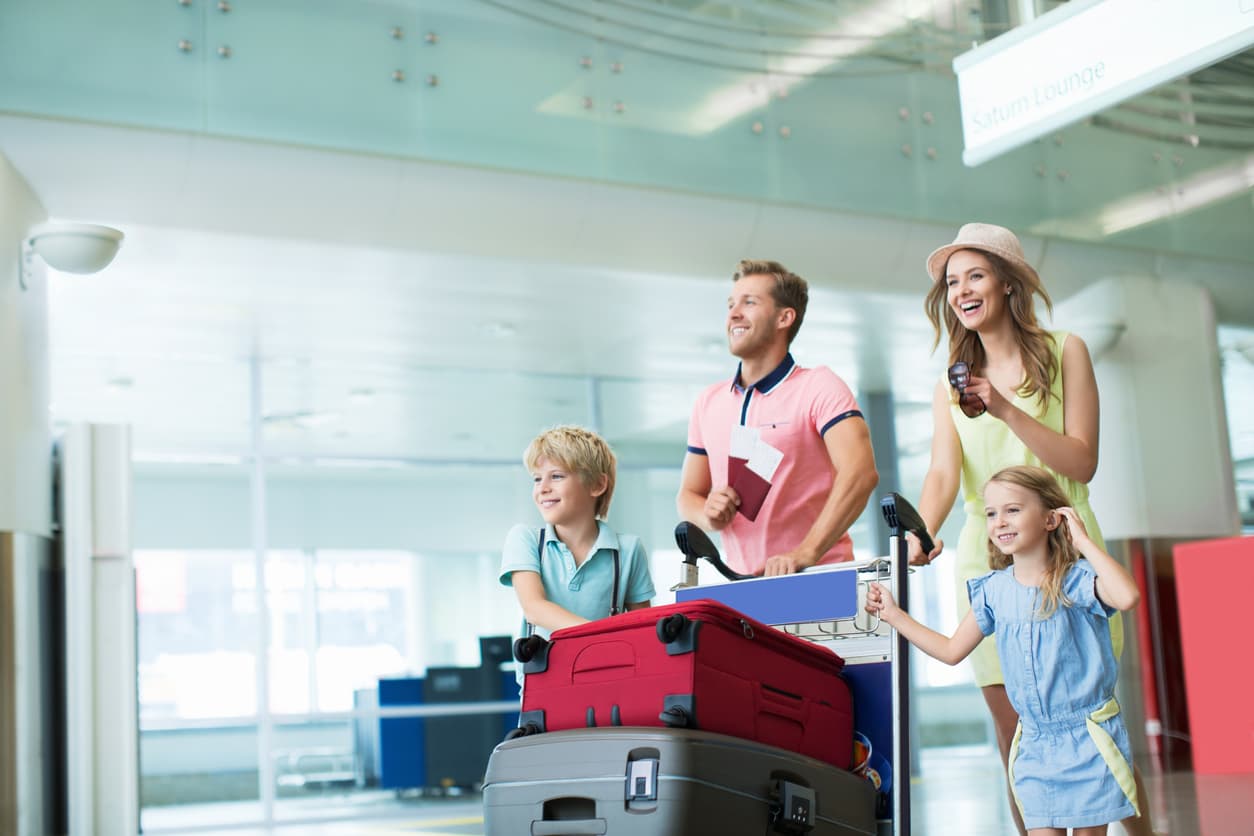- Home
- Blog
- Relocating
- Moving to Australia? Guide to everything you need to know

Moving to Australia? Guide to everything you need to know
Our moving to Australia guide is a must-read for every expat thinking of relocating to the land down under.
October 6, 2020 — 8 min read
It's no secret that Australians enjoy a high quality of life. The country has a low population, breathtaking landscapes, and numerous career opportunities, and is considered one of the best countries to live in because of its low pollution levels, high life expectancy, and high socioeconomic status. It also offers easy access to quality education.
Australia is also very welcoming to immigrants. 30% of its residents were born overseas and people flock to the country each year for better opportunities. Between June 2018 and June 2019, 538,000 people moved to Australia.
Quick facts about Australia (for expats)
Australia’s currency is the Australian Dollar (AUD).
The biggest cities are Sydney, Melbourne, Brisbane, and Perth (in that order.
You need to get a visa that fits the work you intend to do in Australia
Australia has a high cost of living, probably because it is the world’s 12th largest
largest economy.
The country’s public school system follows the British system and meets international standards. However, some expats prefer the private school system.
Australia is considered one of the world’s safest and most stable countries.
Interesting facts about life in Australia
Australia is the land of no worries. You’ll hear Aussies say “no worries” multiple times a day.
There are no deadly animals and insects waiting around the corner to kill you. They are only found in the Outback.
If you have food allergies or intolerances, restaurants will cater to your needs.
Most companies pay well. The average weekly wage is $1713.90 AUD.
Aussies eat outside on a regular basis. They also participate in sports and recreational activities more than people in other developed countries.
Holidays are not a big deal. While everyone gets excited about Christmas and Easter, the festive spirit is not as pronounced as in the U.S. and the U.K.
Aussies don’t tip all the time; they only tip to reward genuinely outstanding service.
Smoking is extremely expensive. Smokers pay $35 AUD for a pack of 20 cigarettes.
The most popular car is the Toyota Hilux.
Sound good to you? If you’re planning on moving to Australia, there are a few things you should be aware of.
6 things you should do before moving to Australia
Moving to a new country can be daunting. But many people still decide to take the plunge and move to Australia every year. And we can't blame them. With its picture-perfect beaches, laid-back attitude, and glorious climate, it's not surprising that so many foreigners make the move.
But before you book that flight in a hurry, there are a few things you should do.
1. Get the right work visa
If you already have an employment contract or a job offer in Australia, all you need to do is apply for one of the Australian work visas. There are visas for skilled workers, highly specialized workers, people participating in specific activities, and more. If you're an experienced businessperson or investor and meet the necessary criteria, you qualify for an Australian self-employment visa, which is known as the Business Talent Visa.
Australia offers employment-based visas and work permits for different expert workers relocating to the country for job-related purposes. Be sure to get the right work visa by visiting the Department of Home Affairs website. If you're not sure which visa is suitable for you or don't know how to proceed with your application, you can contact an immigration professional who will guide you through the entire process.
2. Know the cost of living for your city
The cost of living in Australia is high, however, it differs from region to region. Sydney and Melbourne are Australia's most expensive cities. You'll need $3,671 AUD a month to live comfortably in Sydney. Outside Sydney and Melbourne, life is relatively affordable. You can get by on $2,364 AUD a month in a smaller city like Hobart. Rent is quoted by the week.
If you live a minimal lifestyle, you can expect to spend $600 AUD per week. Add 1/3 of that for Sydney and Melbourne and about 10% for the other big cities. You'll have enough money to pay for a modest shared flat in a relatively safe suburb. The money will also cater for food, low-cost entertainment, basic utilities, and a public transit card for commuting. You can visit Numbeo for accurate and timely information on the cost of living in Australia.
3. Open a bank account with one of the top banks in Australia
The most popular banks in Australia are Australia and New Zealand Banking Group (ANZ), Commonwealth Bank of Australia (Commbank), National Australia Bank (NAB), Westpac Banking Corporation, and HSBC.
Some Australian banks allow you to open an account before moving to the country. But before you open one, consider your banking requirements and your personal situation. Some banks offer better solutions to people who save large sums of money or transfer money to Australia to invest in a business or buy a house.
Opening a bank account in Australia can take 5-10 business days, depending on the account type. Some banks accept a photocopy of a driving license or a passport, but it may have to be certified by someone in a position of responsibility, like a civil servant or a doctor.
4. Transfer money to your Australian bank account
Bank fees are expensive, so don’t try to transfer your money internationally with a bank. It may seem convenient, but banks have unfavorable exchange rates and high, numerous fees.
As soon as you open an Australian bank account, open an account with Xe to transfer your money. We offer competitive rates and low, transparent fees.
You can use our currency converter to check the exchange rates, informed by data straight from the live currency markets. If you have any trouble, our customer service team is here to help.
5. Book your flight in advance and save
According to Investopedia, flights to Australia are cheapest two times a year:
May 1st up to the first week of June
The third week of July up to the third week of September
During peak season (December), airfare can be as high as $3,000 USD, so it's best to fly during the low season. If your travel days are flexible, you can save more money by flying on a weekday (Tuesday through Thursday). Monday mornings, Friday evenings, and Sunday afternoons are not great times to fly, unless you have a few hundred dollars to spare.
Traveling to Australia is pricey and the airfare alone can bust your budget. Book your flight as early as possible, at least two months in advance. If you book a flight just before your travel date, you'll have to pay more for a seat.
It’s also worth mentioning that most travel agencies hold seats for their clients. In case the clients change their travel plans, the seats become available for purchase. This is another great way to find cheap flights. But it’s better to book your flight early to avoid disappointments.
6. Find out about healthcare
Australia has a universal medical coverage system called Medicare. The publicly funded initiative provides primary healthcare to citizens, permanent residents, and some visitors. People with the medical cover pay their medical charges upfront then get reimbursed by the government.
However, Medicare isn’t available to expats with temporary visas. You’ll have to pay for private health insurance. If you hold a permanent visa, you’re eligible for public healthcare. When you apply for an Australian working visa, you’ll be asked to show evidence of a private health cover that you’ll use until you get a Medicare card or private healthcare insurance.
If you decide to get private healthcare insurance, visit privatehealth.gov.au. The government-run website lists all the insurers that get a tax rebate on insurance. You can also use the insurance policy comparison tool to compare policies.
How to Find a Job in Australia
Jobs in Australia are advertised online and in national and local papers. If you've moved to the land down under and want to find your dream job, visit job boards like CareerOne, Seek, JobSearch, and Adzuna. Most of the sites send automated email updates, keeping you informed on jobs you might be interested in.
You can also find out about jobs in your industry or field of expertise on social networking sites like Twitter and LinkedIn. Let your connections know that you’re moving to Australia and they may use their networks to help you. If you belong to professional associations, ask if they have counterparts in Australia.
You can also send a general job application to companies you’d like to work for outlining your skills and experience. You can submit your application through the company website or send it to the recruitment manager. If something suitable comes up, you’ll be first in line.
We wish you the best of luck with your upcoming move, and we’re here to help with any of your foreign currency needs. Log in or sign up for a free account today to see what we can do for you.
Related Posts

June 28, 2021 — 7 min read

June 17, 2021 — 8 min read

May 25, 2021 — 9 min read

December 18, 2020 — 8 min read

November 5, 2020 — 8 min read

November 3, 2020 — 14 min read